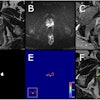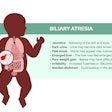
An interventional radiologist who prescribed anabolic steroids, testosterone, and growth hormones has been suspended for 20 months, according to a report posted on 24 September by AusDoc.
The State Administrative Tribunal (SAT) in Western Australia heard that between 2010 and 2018, the "highly experienced" interventional and endovascular radiologist prescribed the substances to patients complaining of weight gain, low libido, and fatigue. The man, who was not named in the AusDoc report, also inappropriately prescribed stimulants, anastrozole, dehydroepiandrosterone, and thyroid extract without any therapeutic indication.
In an article published by the West Australian on 27 September, the radiologist is named as Dr. Sanjay Nadkarni.
Nadkarni told the tribunal he became interested in integrative, or healing-oriented, medicine in 2005, when patients attending his endovascular clinic said they were dissatisfied with their general practitioners' treatments for symptoms including joint pain. This led him to explore management options for these patients in the hope of adding an integrative and holistic element to his practice.
He set up an "anti-ageing" and cosmetic medicine clinic in 2009, and over the next decade, he attended workshops and became convinced that his prescribing of steroids and other substances was clinically justified.
An investigation into the radiologist's prescribing began in 2018, the AusDoc article noted. He was referred to the tribunal over his prescribing to nine patients, but these patients were merely a sample of his prescribing while he was practicing. The Medical Board of Australia took the action.
Mistaken understanding
Nadkarni was found guilty of professional misconduct, particularly because he knew the medication was not approved to treat symptoms of weight loss, fatigue, and tissue pain. The tribunal accepted that his prescribing practices were the result of a genuine desire to help patients but were also driven by a mistaken understanding of clinical justification.
The tribunal noted that 30 doctors and other healthcare professionals provided references for Nadkarni and spoke about the potential effect on patients if he were banned. However, it found that his prescribing was a "serious example of misconduct" that involved, for example, the ordering of unnecessary blood tests, according to the AusDoc report.
"[His] pattern of prescribing may lack some features of other more serious cases, such as the ... profit motive," the tribunal stated. "However, in our view, the presence of those features would have aggravated the seriousness of the misconduct."
When Nadkarni returns to practice, conditions will be imposed on him, including a ban on substances he uses in integrative medicine. The exception to this ban will be salbutamol, which he can prescribe for acute asthma.



















